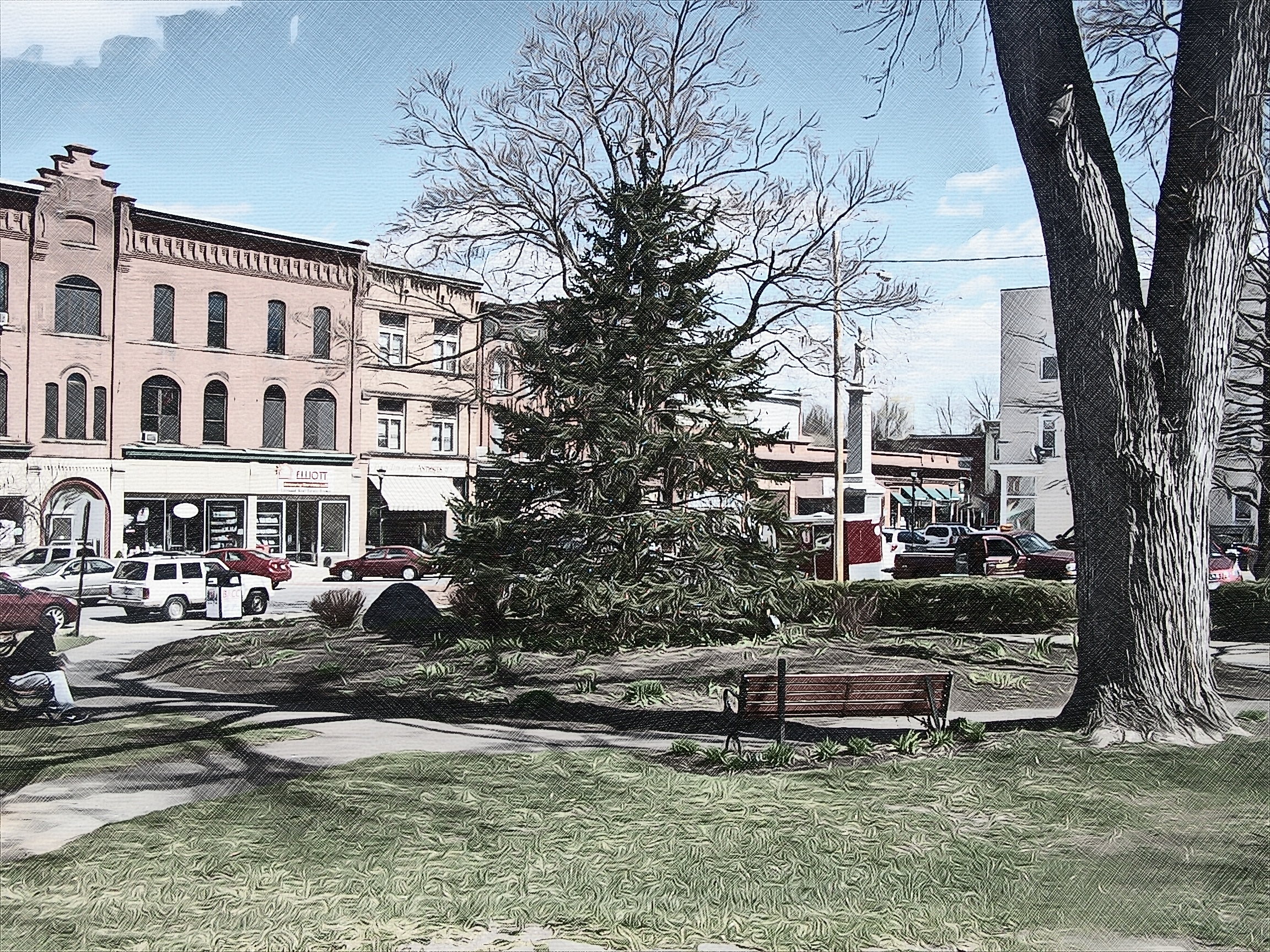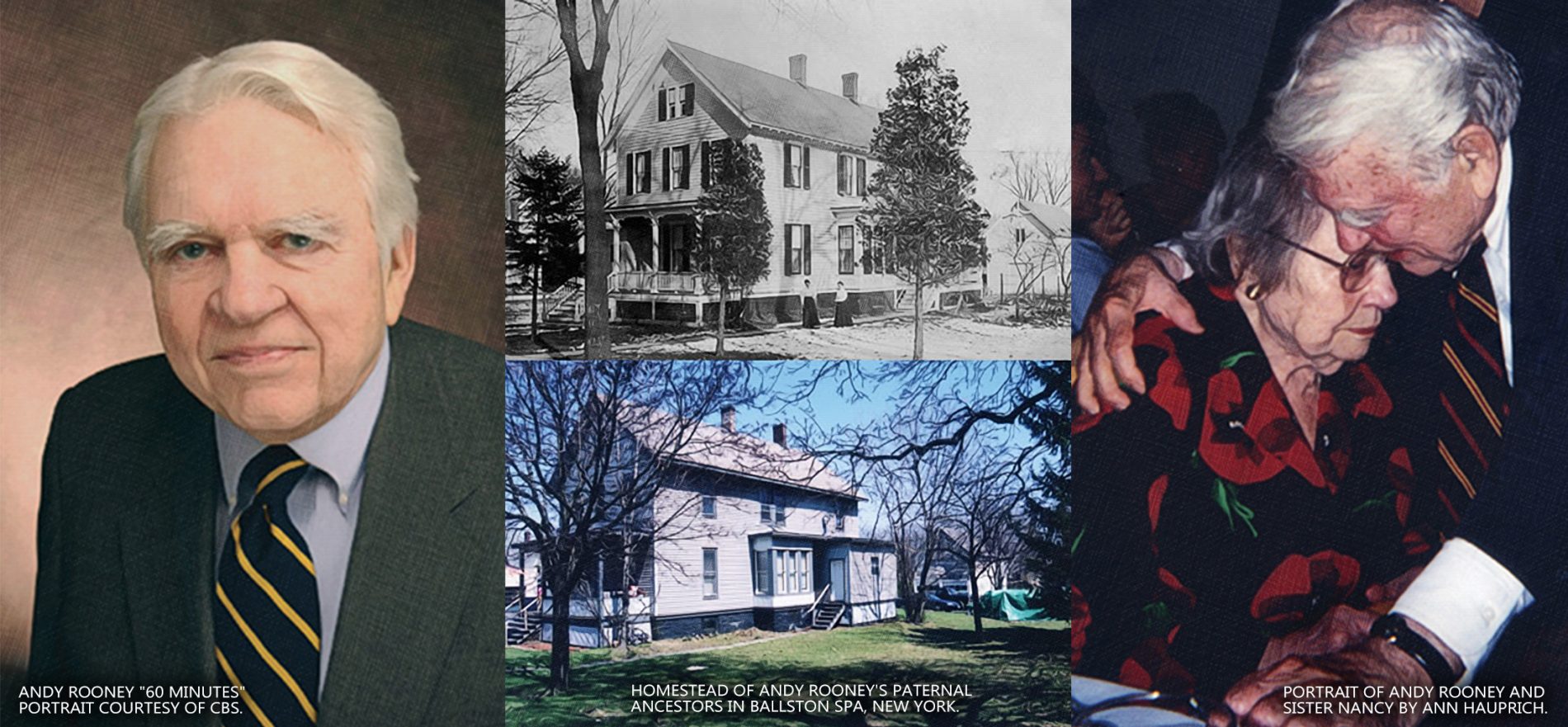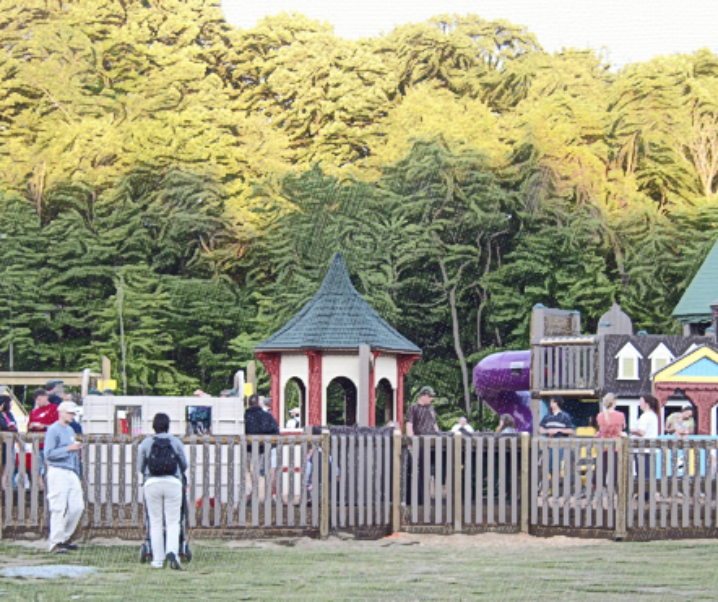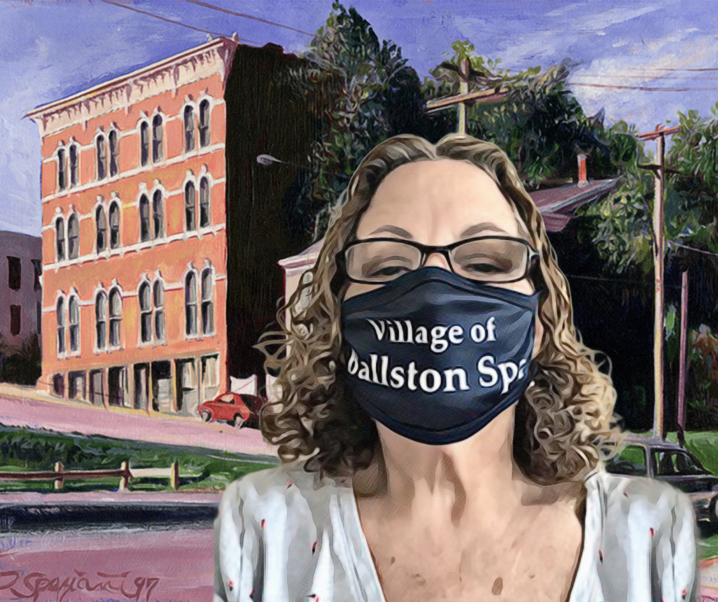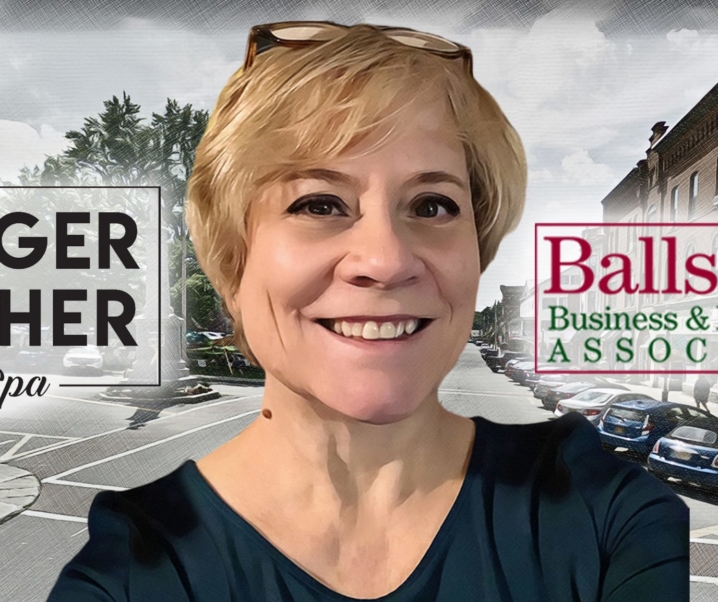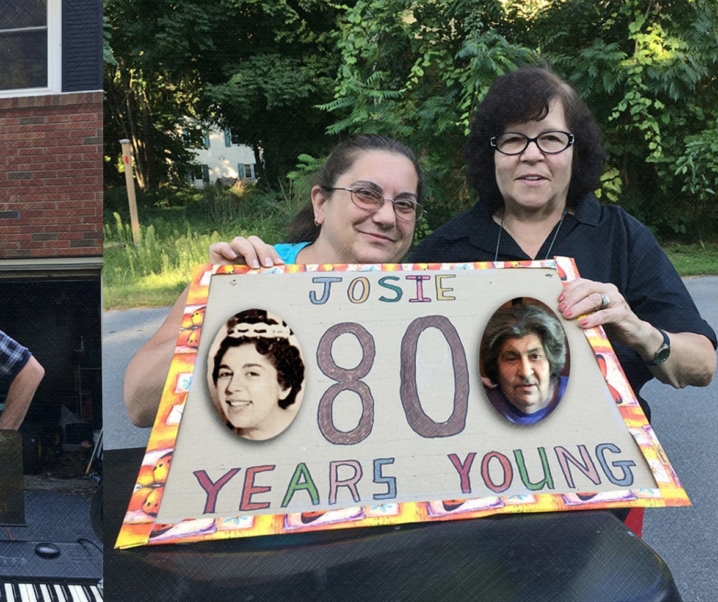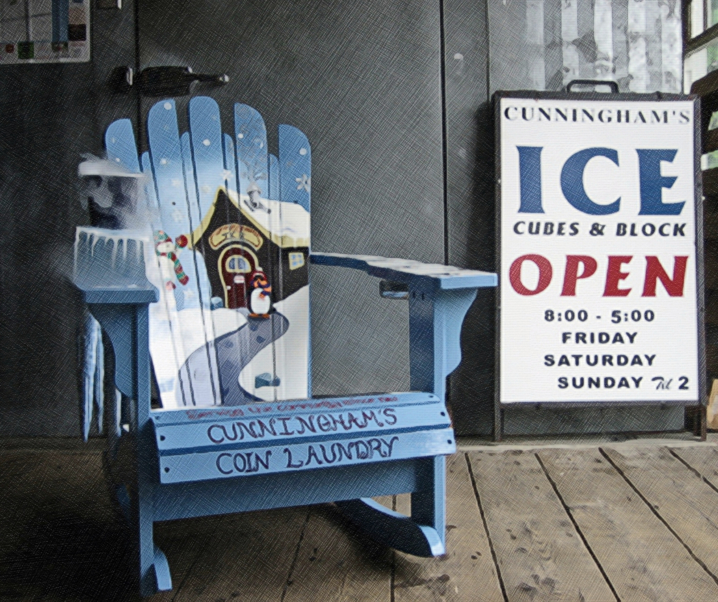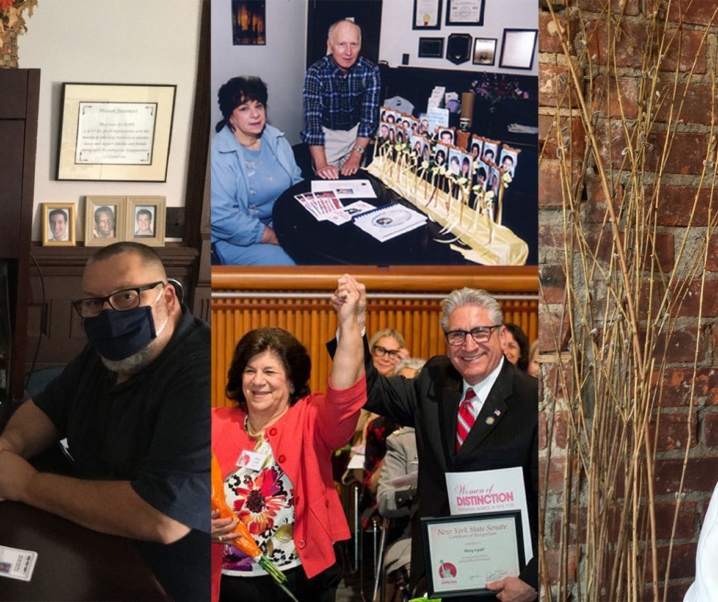With several of their 10 children still young enough to require the services of a free parental taxi, it was rare to catch my multi-tasking Mom and Dad glued to a TV screen in the evenings. But that’s the picture I have of them, seated side-by-side, listening intently to what Andy Rooney had to say during his segment on 60 Minutes.
Then came the day in late 2002 when I heard that Andy Rooney not only had boyhood ties to the Village of Ballston Spa through his late parents and grandparents – but that some of his ancestors had resided in an historic house on Church Avenue where a rustic barn still stood in the backyard.
Even without the visuals, I’m pretty sure my schoolteacher mother and blue-collar father would have tuned into the program that featured the wit and wisdom of this broadcast journalist who was just a few years their senior. While they didn’t always agree with what Andy Rooney had to say, it was rare that his “way with words” didn’t leave them in an elevated mood.
When I resided outside of the USA during the 1980s, Mom and Dad would often clip syndicated columns written by Andy Rooney and mail them to me as well as gifting me with some of his early books. To them — and to me — Andy Rooney was larger-than-life. Like millions of others, we were fans from afar. Then came the day in late 2002 when I heard that Andy Rooney not only had boyhood ties to the Village of Ballston Spa through his late parents and grandparents – but that some of his ancestors had resided in an historic house on Church Avenue where a rustic barn still stood in the backyard.
The property in question was one I’d walked by countless times since my family settled just a few doors away in 1968. Suddenly an old house and barn I’d barely given a second glance became an old house and barn about which I yearned to know everything.
By now I’d returned to my upstate New York roots and founded Saratoga Living magazine. Serving as the then fledgling regional periodical’s editor and publisher, I was constantly on the lookout for cover stories that would have broad readership appeal. I was positive a piece about Andy Rooney’s ancestral ties to Saratoga County would make for a winning edition, but the thought of contacting him to ask related questions on this topic terrified me.
Widely regarded as something of a curmudgeon who rarely granted interviews and had let more than one member of the media know that his private life was private, my hands all but shook as I picked up the receiver to punch in the number I’d been given for his office at CBS in New York City.
What if I called his assistant to request an interview and was turned down flat? What if his assistant agreed to book a phone interview and when the time came to conduct it, I became tongue-tied? The more I pondered what could go wrong, the more convinced I became that I should leave well enough alone and find another cover story for the Summer 2003 edition of the magazine.
Then it happened. I summoned the courage to pick up the phone very early one morning, praying I’d get an answering machine at CBS. To my great amazement, the voice on the other end sounded familiar because it belonged to none other than Andy Rooney.
I have mercifully long since blanked out the memory of how I must surely have flubbed my introduction. In its place is the blessing of a vivid recollection of how downright congenial Andy Rooney was the minute I mentioned the house on Church Avenue with the old barn in the backyard.
Half an hour later, my steno pad was overflowing with notes and quotes about Albany-born and bred Andy Rooney’s boyhood memories of visits to Ballston Spa with his older sister, Nancy Reynolds Rooney, and their parents, grandparents, aunts, uncles and a special cousin or two. A favorite ancestor was unquestionably his Uncle Bill Rooney – who had been not only a prominent local attorney, but “a boy’s best friend” during the 1920s and 1930s. I learned Uncle Bill had once been a champion runner and that he’d gone on to coach the Ballston Spa High School football team when Andy’s father, Walter Scott Rooney, was a student there in the early 1900s. Andy’s mother, Ellinor Reynolds Rooney, had been raised on a farm roughly a mile from Church Avenue that is now a scenic park where a playground known as Kids’ Creekside Village draws children of all ages.
After sharing generously of his youthful memories, Andy gave me a gift that at the time seemed insignificant, but proved to be one of my life’s greatest blessings. He shared the phone number where I could reach his sister, stating that Nancy knew far more about the rest of the family’s history than he did. He also thought Nancy – who was then 89 and residing in a posh assisted living center in Saratoga Springs – might have some old family photos I could scan and publish with the story I was planning to write. (Click here for story about Andy’s sister Nancy that appeared in the Summer 2003 issue of Saratoga Living.)
In the years that followed, I was to develop a close friendship with Nancy, who had been robbed of parts of her cherished independence by advanced macular degeneration.
Sometimes we’d visit in her lovely living quarters or the elegant dining room inside of Prestwick Chase of Saratoga, but more often than not, she’d want me to pick her up and drive her to a setting that had been familiar to her during her youth.
For a severely visually impaired person, Nancy had an uncanny ability serve as a tour guide. Not only could she describe in vivid detail how the exteriors of select businesses and homes of distinction had looked in a bygone era, she also remembered who the shopkeepers had been and the names of the families that had once occupied the homes. Thanks to Nancy, I also began to look at landmarks I’d previously taken for granted from an exciting new perspective.
History came to life in a way I had never before dreamed possible. The day in 2003 when I brought her to visit Ballston Spa History Consultant Maurice “Christopher” Morley (who had been born in the village in 1922), the pair spent hours reminiscing about people, places and things linked to a bygone era. Photos snapped that morning show them surrounded by artifacts linked to a time period that clearly held fond memories for both.
Not long thereafter, my parents rolled out The Red Carpet inside their Church Avenue home – where Nancy recalled the names of those who had resided there in the early 1900s as well as waxing nostalgic about neighbors of a bygone era.
Another day, I escorted Nancy to the Brookside Museum (home of the Saratoga County Historical Society) because the historic property had once belonged to Uncle Bill and his wife, Auntie Belle. From there we went to the nearby Old Iron Spring where Nancy wanted to sample the mineral water that still bubbles forth on the premises. How fondly she remembered sampling those same waters as a little girl, accompanied by her little brother and their beloved mother!
Use viewer above to read Dear Nancy, Thanks for the Colorful Memories by Ann Hauprich
Other times, she wanted to hear composer-pianist Cole Broderick serenade her as she sat on a deck overlooking Saratoga Lake where maternal ancestors had enjoyed spending summer vacations around the turn-of-the-century. Cole and I were thrilled when Nancy subsequently invited us to visit with her when she was vacationing in the historic camp overlooking Lake George where she and Andy had once spent summers with their parents.
Cole and I were preparing to depart for a luncheon visit with Nancy at Pilot Knob one summer’s day in 2008 when our phone rang with the news that she had peacefully slipped away in the night. While saddened that we hadn’t had a chance to say our earthly good-byes, Nancy lives on in our hearts and in our memories.
I thought of her again just the other day when notes from a telephone conversation I’d had with author William Kennedy tumbled out of a copy of his 1983 book O Albany! It was at Nancy’s urging that I had called Kennedy at his Averill Park residence in October 2005 to seek advice about how best to prepare a book for Ballston Spa’s Bicentennial in 2007.
Nancy had assured me that despite Kennedy’s celebrity after winning a Pulitzer Prize for Ironweed and the making of that novel into a motion picture co-starring Meryl Streep and Jack Nicholson, he was still as “friendly and free” as ever.
And indeed the friendly advice Kennedy freely gave to me just over a decade ago proved to be invaluable as I began researching stories for Ballston Spa: The Way We Were, The Way We Are.
Watching Nancy blow out the candles on her 90th birthday cake at a party given in her honor at Lake George by her brother and his wife, Marguerite Howard Rooney ranks as another favorite memory. To my surprise and delight, I was seated directly across from Andy Rooney and found him as easy to converse with as Mr. Kennedy.
I did not realize until I got the film developed nearly 15 years ago that I had captured a heart-warming image of Andy as he was moved to tenderly embrace his Big Sis. The image brought a deeper meaning to another photo I’d seen of the sibling pair — which was taken while they were visiting their paternal grandparents in Ballston Spa, NY in the 1920s. In that photo, young Nancy has a protective arm wrapped around her kid brother – whom she always referred to as Andrew. Both photos speak volumes about the strong bond between the two.
A specially signed copy of Andy Rooney’s book — which he arranged to have sent to my Dad, Donald Hauprich, on the occasion of his 80th birthday in 2004A photo found elsewhere in this chapter shows a specially signed copy of Years of Minutes — which Andy Rooney arranged to have sent to my Dad on the occasion of his 80th birthday in 2004. The hand-written inscription reads: “To Donald Hauprich from his daughter Ann and her friend Andy Rooney.”
Andy had earlier sent me a note in response to an in-depth article I’d written about his roots and his career in which he stated: “Your piece is exceptionally well-done. I’ve been writing long enough to know how hard it is to get it right, and you did a job that amazes me. You not only got it right, you wrote it well. I am impressed.”
I was profoundly touched by that compliment and promptly thanked him, but when Andy used the word “friend” to describe me in the passage to my Dad, I could not find the words to express my feelings.
Andy subsequently surprised me by calling with encouraging words about the Bicentennial book I’d sent to him at the end of 2007 and a sequel that was published early in 2009. He just wanted me to know he appreciated my efforts to preserve the past for future generations.
Our final conversation took place a couple of years later when I answered the phone in my office to discover the voice of Andy Rooney at the other end. He said he’d been leafing through the Ballston Spa history books and that he hoped to drive through the village one day en route to Lake George.
Mostly he wanted to take another peek at the old barn where he used to play on Church Avenue. Andy promised to give me a call prior to his arrival – in case I was free for lunch. It would have been a perfect time to tell him how I truly felt about his many kindnesses, and I rehearsed how I would say what was in my heart. It would be easier face-to-face than on the phone. Or so I made myself believe — and hope.
Upon learning of Andy Rooney’s passing at age of 92 near the end of 2011, I regretted that I’d failed to open up about this and other things. For instance, I never asked him what he thought of Danish philosopher Piet Hein. I can’t help but think they’d have hit it off famously given their respective penchants for penning words of wit and wisdom.
It was, after all, Hein who observed: “As eternity is reckoned, there’s a lifetime in a second.” How grateful I am to have been afforded a glimpse of the softer side of Andy Rooney – if only for a fraction of a millisecond on eternity’s clock.
Andy RooneyAnn HauprichBallston Spa
